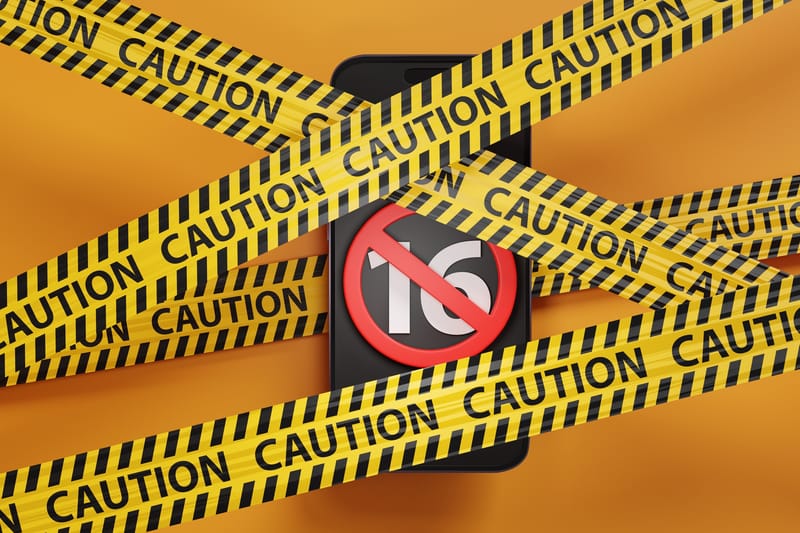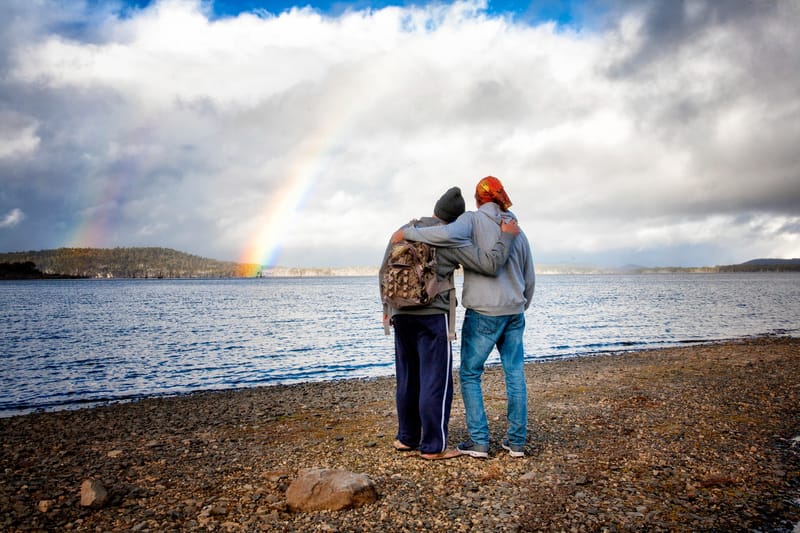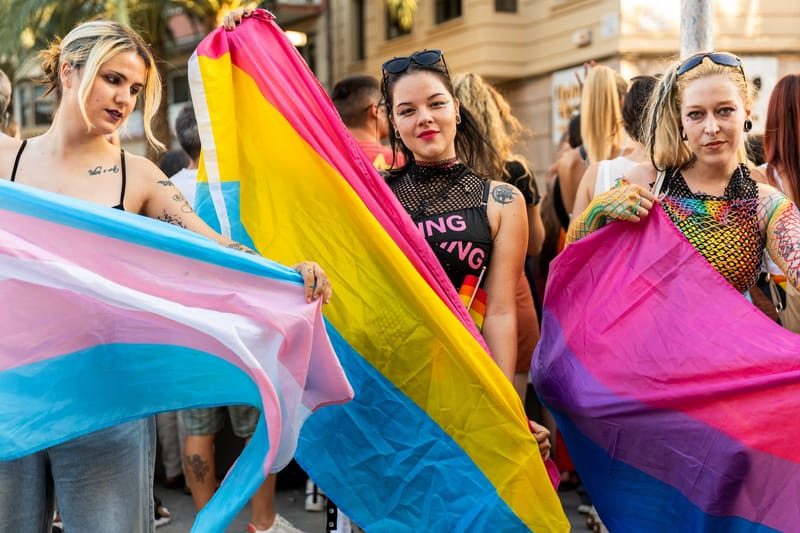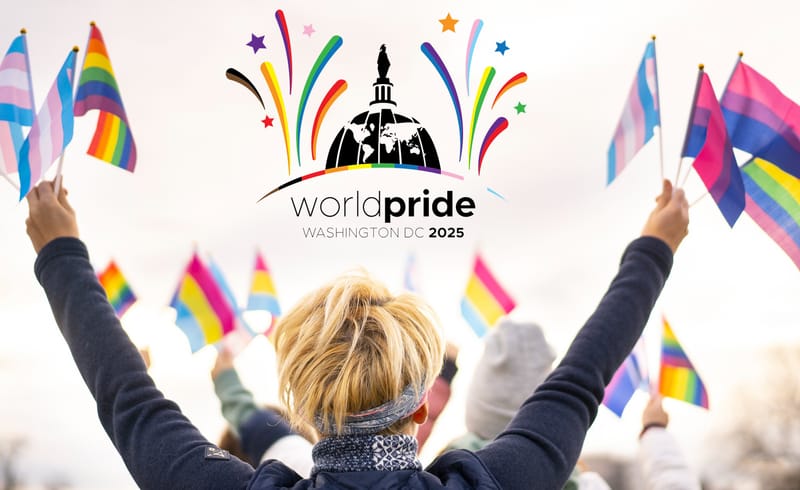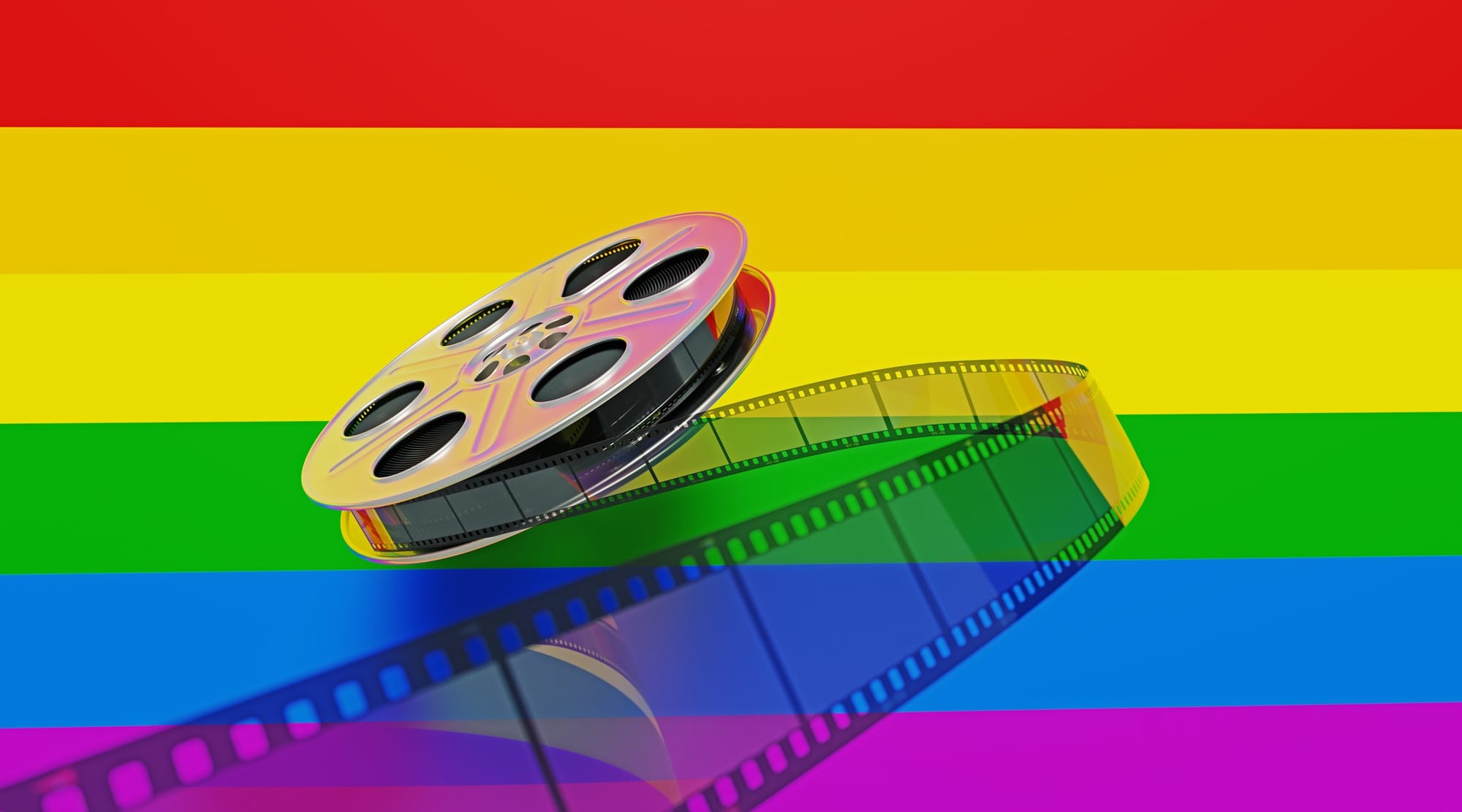
Netflix’s recent cancellation of Dead Boy Detectives is about more than a TV show – it’s about the fight for queer art and representation.
In a world of attacks on queer rights and queer folk, including rising transphobia, Dead Boy Detectives is a desperately needed piece of queer art.
Created by Steve Yockey and based on DC Comics characters, the show follows ghost detectives Charles (Jayden Revri) and Edwin (George Rexstrew), psychic medium Crystal (Kassius Nelson), and friend Niko (Yuyu Kitamura) as they solve supernatural mysteries and confront their demons, literal and figurative.
The show centres and celebrates queerness and tackles serious issues regarding violence, justice and accountability. It’s also an exemplar of diverse media representation and inclusion, with three of the four main characters people of colour.
It captured a loyal fanbase, excellent critical reception and reviews (including a 92% approval rating and 90% audience score on Rotten Tomatoes), and good streaming metrics, staying in the top 10 shows on Netflix for three weeks. It was even submitted by Warner Bros. (one of the show’s production companies) for Emmy nominations in several categories.
Still, Netflix recently cancelled the show after one season – to date with no official explanation for the decision – leaving fans, cast and crew shocked and devastated.
To quote an Instagram post in the wake of the news from Shoshana Sachi, one of the show’s writers and supervising producers: “We need more shows like this one right now”, not fewer.
Shoshana Sachi via Instagram;#SaveDeadBoyDetectives pic.twitter.com/XDxrUtfOoH
— Dead Boy Detective Agency (@dbdagency) August 31, 2024
Positive, nuanced queer representation on screen is still hard to come by. Damaging stereotypes and tropes like “bury your gays” – where queer characters are killed off to further the narrative of heterosexual characters – are still routine on screen (see the infamous case of Lexa in The 100, or the more recent example of Killing Eve).
Much queer media still focuses on narratives of trauma and tragedy, understandably so in some ways, given the prevalence of these experiences in queer people’s lives.
But Dead Boy Detectives stands out by refusing to be reduced to representations of queerness as suffering. It does explore trauma, hardship and death, but it also presents a world where queer love and solidarity are mainstreamed and valued, and where even queer joy and creativity flourish.
The show also addresses some of the most critical problems of our time, particularly when it comes to gendered social issues. It delves into the devastating impacts of men’s violence against women and children, tackling physical abuse and domestic homicide, as well as emotional abuse and coercive control.
The show has minor connections to Neil Gaiman who, with Matt Wagner, co-created the two main characters in 1991 as a chapter in The Sandman comic series (the characters then went on to appear in numerous other publications unrelated to Gaiman).
When allegations of sexual assault and abuse against Gaiman emerged in July 2024, the show’s fanbase resolutely condemned his alleged actions and stood with the women speaking out against him. Their outrage perfectly aligns with the core lessons of the show, which counters harmful gendered stereotypes and advocates for men to take responsibility for their actions, hold one another accountable, process anger, and open up to feelings like love and empathy.
Dead Boy Detectives is full of fantasy elements, but with more media representations like this, the show’s world of acceptance, love and possibility for gender and sexuality might not be so unrealistic after all.
Art is a fundamental part of building better and more inclusive societies, and Dead Boy Detectives as a piece of queer art is unique, bold, and groundbreaking.
Art is especially important for and in queer communities as a means of expression, representation and activism, as the outpouring on the internet of Dead Boy Detectives fan art and fiction by passionate queer audiences demonstrates.
Netflix has long tried to market itself to audiences just like this as an alternative to more traditional media companies. Yet its cancellation of Dead Boy Detectives is another in a long line of queer shows and shows with queer storylines – such as Sense8, Julie and the Phantoms, and Shadow and Bone – to be axed by the company before their time.
The showrunner of Warrior Nun, another of Netflix’s prematurely cancelled shows, even revealed that Netflix pushed back against the writers developing a queer romance for the show’s second season.
Meanwhile, the streaming service continues to platform performers such as Dave Chappelle, who used his latest Netflix special (his seventh on the streaming service) to double down on jokes made about the queer community, particularly targeting transgender folk.
It seems, then, that companies such as Netflix are still largely only interested in token queer representation, and only if and when it aligns with ever-shifting profit goalposts.
Netflix shows little understanding of what fans of Dead Boy Detectives and queer folk more broadly know deeply – that change and the chance to live in a truly equal society require long-term commitment, support, and even bravery.
Now, as throughout history, it’s been left up to queer, grassroots organising and activism to try to put things right and fight for what the community needs and deserves.
The fanbase has immediately rallied around the show as a cherished piece of queer art, organising a growing petition, actions on and offline, and online communication and information-sharing channels, all under the hashtag #SaveDeadBoyDetectives.
Through its community-building, energy, and activism, the fanbase is proving to be the living embodiment of the lessons Dead Boy Detectives has to teach us about solidarity, love and care.


